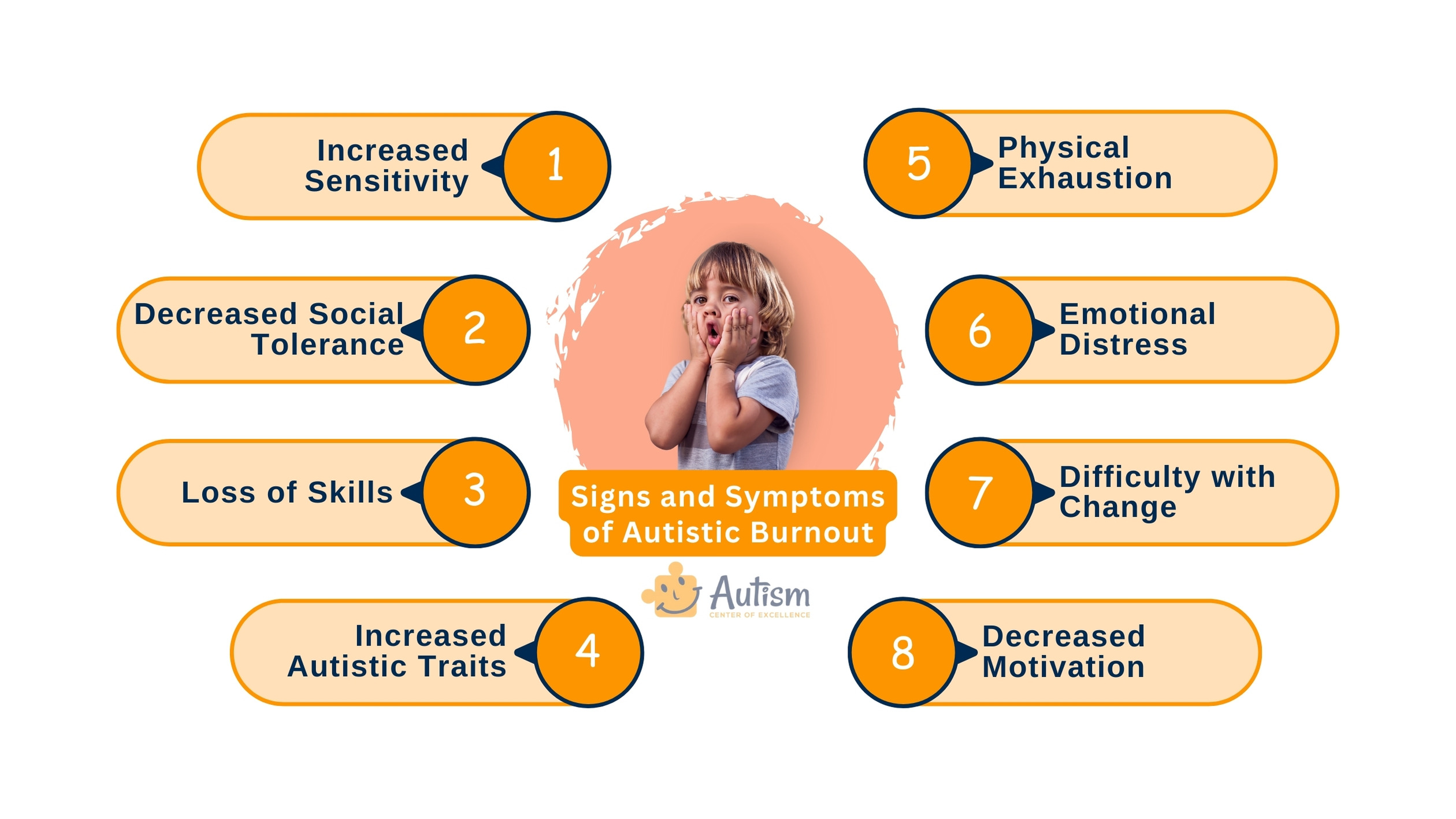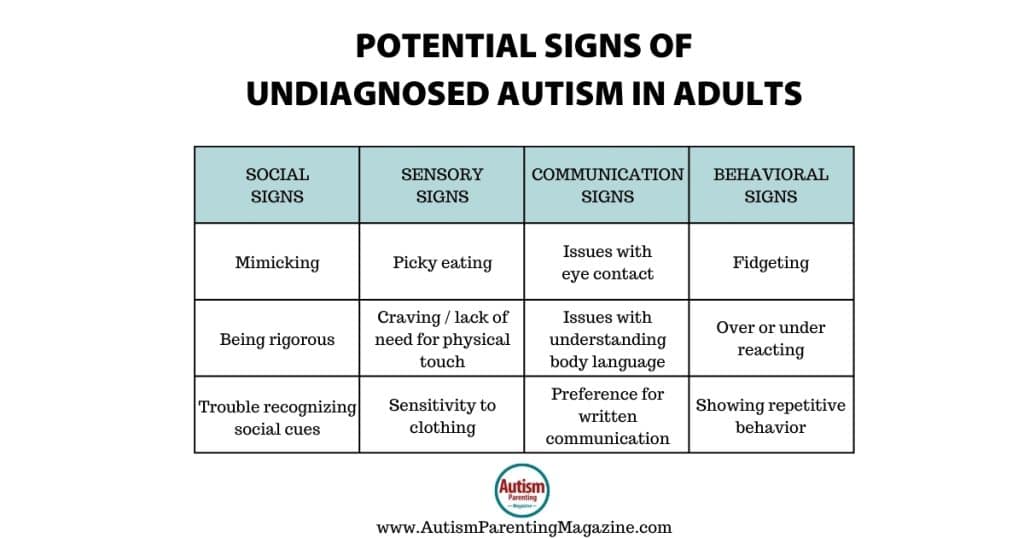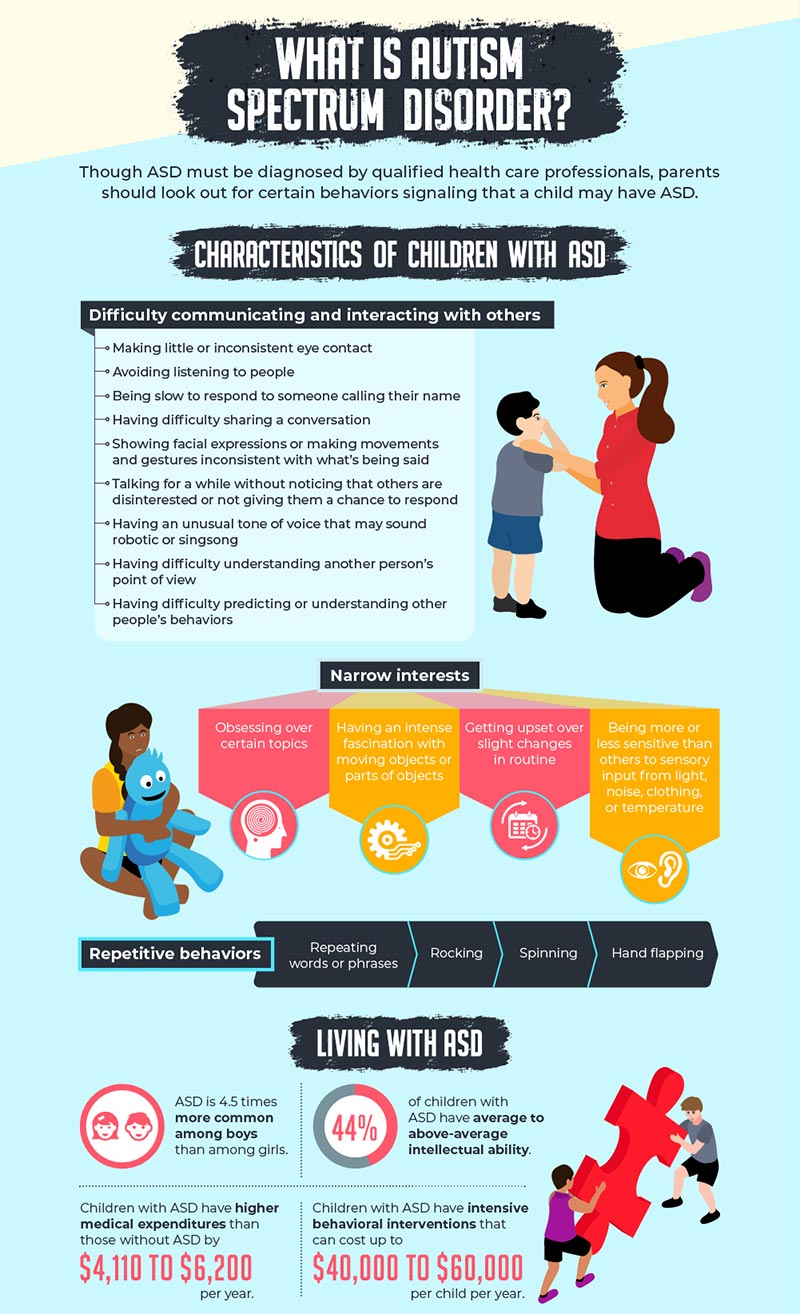Do Autism Spectrum Therapies help with developing independence in teens with ASD?
Do Autism Spectrum Therapies help with developing independence in teens with ASD?
Blog Article
Comprehending the Influence of Behavioral Autism on Life and Social Interactions
You might not recognize how deeply behavioral autism impacts life and social communications. Individuals on the range usually browse a globe full of interaction hurdles and sensory overload. These challenges can lead to aggravation and seclusion, influencing their connections and general health. Recognizing these subtleties is important for promoting supportive atmospheres. What techniques can we implement to produce even more comprehensive spaces and meaningful connections? The solutions may stun you.
Defining Behavior Autism and Its Qualities
Behavior autism, commonly described as autism range disorder (ASD), includes a series of conditions characterized by obstacles in social interaction, interaction, and recurring actions. You may observe that individuals with ASD frequently struggle to analyze social signs, which can cause misunderstandings in discussions. They may locate it difficult to establish eye call or engage in small talk, making social scenarios feel frustrating.
Communication difficulties can show up in numerous ways, from postponed speech development to a choice for making use of less words. Repetitive habits, such as hand-flapping or rocking, can function as coping mechanisms to handle anxiety or sensory overload. These characteristics can exceptionally impact every day life, making it essential for you to understand and sustain those with ASD. By identifying these traits, you can promote an atmosphere that advertises approval and urges reliable communication, assisting people with autism prosper in their daily interactions.
The Range of Autism: Comprehending Irregularity in Habits
Autism spectrum condition (ASD) isn't a one-size-fits-all medical diagnosis; it differs extensively among individuals. You might discover that some people with ASD exhibit mild symptoms, while others might encounter much more substantial challenges. This variability can manifest in behaviors, passions, and sensory sensitivities. You might come across people that are highly spoken and involve conveniently in conversations, while others may choose singular activities or connect non-verbally.
In addition, the method individuals with ASD react to sensory input can differ greatly; some may be overwhelmed by intense lights or loud sounds, whereas others flourish in promoting settings. The spectrum additionally consists of differences in social interactions; some people might struggle to interpret social cues, while others navigate social setups with loved one simplicity. Understanding this variability is essential, as it helps you appreciate everyone's unique experience and tailor assistance to their particular demands, fostering a much more inclusive atmosphere for everyone.
Interaction Challenges Dealt With by Individuals With Autism
When you engage with individuals on the autism range, you may discover their unique interaction challenges. They usually deal with difficulties with both spoken and nonverbal cues, which can influence their social communications. Comprehending these barriers is crucial for fostering much better connections and support.

Verbal Communication Difficulties
Several individuals on the autism range experience spoken interaction problems that can considerably affect their daily communications. You may discover it challenging to share your ideas, sensations, or needs clearly. This can bring about stress for both you and those around you, as misunderstandings happen. You may have problem with initiating conversations, preserving a subject, or recognizing nuances in speech. Frequently, you could prefer making use of basic language or repetitive phrases, which can limit your capacity to engage in deeper conversations. Your speed, tone, or quantity might not straighten with social expectations, creating others to misinterpret your intents. Acknowledging these difficulties can aid you and your support network develop strategies to enhance communication and cultivate much better links with others in your day-to-day live.
Nonverbal Communication Barriers
Verbal interaction isn't the only obstacle people on the autism range face; nonverbal interaction barriers can be equally as considerable. You might find it difficult to analyze body movement, faces, and eye get in touch with, which are vital for effective interaction. These challenges can lead to misunderstandings or misconceptions of social signs, making interactions feel overwhelming or complicated. You may battle to express your very own feelings through nonverbal ways, leaving others unclear of your feelings or purposes. This separate can develop sensations of seclusion and disappointment. Recognizing these barriers is essential for promoting understanding and empathy in your communications. By resolving nonverbal communication, you can locate methods to improve your social experiences and boost your general quality of life.
Social Interaction Effects
Social communications can often really feel overwhelming due to the unique interaction obstacles faced by people with autism. Acknowledging these challenges can help you discover techniques to boost communication, such as exercising social abilities in safe setups or making use of visual aids. Comprehending your demands enables you to navigate social communications with greater confidence and simplicity.
Social Interaction and Connection Structure in Autism
While structure relationships can be testing for individuals with autism, comprehending their unique point of views and communication designs can promote purposeful links. You could see that several people on the spectrum choose straight interaction and may have problem with social signs or small talk. By being simple in your communications, you can aid develop an environment where they feel comfortable.
Involving in shared passions can additionally offer as a bridge to much deeper links. Whether it's a leisure activity, a favored program, or a common interest, these usual strings can open up doors to friendship.
Day-to-day Live Regimen: Browsing Difficulties and Methods
Navigating day-to-day live regimens can be especially challenging for people with autism, specifically when unanticipated changes happen. You may find convenience in having a structured schedule, as it helps you expect what's next. When disruptions take place, it's regular to feel overwhelmed or anxious. To browse these difficulties, consider carrying out aesthetic routines or lists. These devices can supply clarity and reassurance.
Establishing a regimen that includes sensory breaks can additionally be helpful. You can intend short breaks throughout your day to charge. It's important to connect with those around you, allowing them understand your choices and demands. This helps develop an understanding atmosphere.
Lastly, practice mindfulness methods to manage stress and stress and anxiety. Simple breathing exercises or grounding techniques can make a significant distinction. By integrating these strategies, you can enhance your everyday regimen and decrease disturbances, making life feel more convenient.
Strengths and Capabilities of People on the Autism Spectrum
Comprehending day-to-day live routines is simply one aspect of the autism experience. Several people on the autism range have exceptional toughness and capabilities that set them apart. You might locate that your focus to detail is outstanding, enabling you to stand out in tasks that require precision and focus. Your capability to think outside package can cause innovative remedies in numerous situations.
Additionally, your memory abilities typically beam, specifically in areas of interest. Autism Spectrum Therapies. This knack for maintaining info can make you an important source in fields like scientific research, technology, or art. You may also show solid visual reasoning, allowing you to picture complicated ideas and solve troubles artistically
Furthermore, your special perspective on the globe can cultivate compassion and More about the author understanding in others, enriching social interactions. Embracing these strengths not only boosts your self-confidence yet additionally helps others value the varied talents you bring to the table.
Developing Comprehensive Atmospheres for People With Autism
Producing comprehensive atmospheres for people with autism starts with making sensory-friendly spaces that satisfy their distinct demands. You can likewise promote chances for social communication, helping to construct connections and relationships. By making these changes, you'll contribute to a click here for info much more inviting atmosphere for every person.
Creating Sensory-Friendly Spaces
While developing sensory-friendly spaces, it's important to review the distinct demands of people with autism. Start by selecting relaxing colors and soft illumination to develop a relaxing atmosphere. Include quiet zones where individuals can retreat and charge when overwhelmed. You'll intend to decrease loud sounds and diversions, using soundproof products or white noise machines to help preserve serenity. Think about responsive aspects like soft textiles or fidget-friendly things that can give convenience. Ascertain that spaces are flexible, permitting easy rearrangement to accommodate different activities. Finally, include visual schedules or clear signage to aid people navigate the area with confidence. By thoughtfully integrating these components, you can develop a welcoming environment that supports sensory needs and advertises general well-being.
Promoting Social Communication Opportunities
Creating sensory-friendly rooms not only addresses specific comfort however also sets the stage for purposeful social interactions among people with autism. Motivate peer mentoring, combining individuals with autism with encouraging peers that can guide them with social scenarios. By applying these strategies, you can improve social possibilities, helping individuals with autism construct relationships and reinforce their social skills in a risk-free, inviting environment.

Regularly Asked Inquiries
Just How Can Pals Assistance A Person With Behavioral Autism?
You can sustain a pal with behavioral autism by holding your horses, paying attention actively, and respecting their borders. Participate in activities they delight in, connect honestly, and develop a comfortable atmosphere where they really feel valued and understood.
What Resources Are Readily Available for Parents of Children With Autism?
You can check out different sources for moms and dads of children with autism, consisting of assistance teams, academic internet sites, and neighborhood social work. Connecting with other parents can likewise supply valuable insights and shared experiences to aid browse difficulties.
Can Behavioral Autism Change Over Time?

Yes, behavioral autism can transform gradually. You might observe view changes in communication, social skills, and habits as your kid expands. Early treatment and support frequently play important duties in these developmental adjustments.
Exactly How Do Sensory Level Of Sensitivities Influence Life?
Sensory sensitivities can make everyday experiences frustrating. You could fight with loud sounds or intense lights, resulting in stress and anxiety or avoidance. Locating environments that accommodate your demands can greatly improve your comfort and general day-to-day live.
What Are Usual Misconceptions Concerning Behavioral Autism?
You could think behavioral autism only affects interaction skills, yet it's even more complicated. Lots of presume people lack empathy or intelligence, which isn't real. Recognizing these misconceptions aids foster acceptance and assistance for those on the range.
Behavioral autism, often referred to as autism range disorder (ASD), includes a range of problems identified by obstacles in social interaction, communication, and repeated actions.Social interactions can usually really feel frustrating due to the special interaction difficulties dealt with by individuals with autism.Creating sensory-friendly rooms not just addresses private comfort but also establishes the phase for purposeful social communications amongst people with autism. Encourage peer mentoring, pairing people with autism with encouraging peers who can guide them via social scenarios. By carrying out these methods, you can improve social opportunities, aiding people with autism construct friendships and strengthen their social abilities in a risk-free, welcoming setting.
Report this page